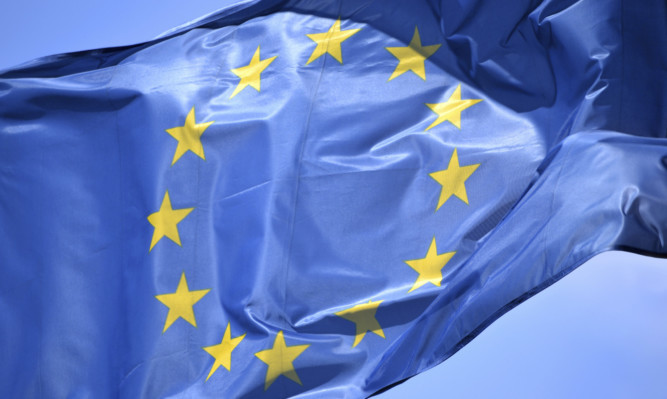Scotland could potentially reduce the costs of a Brexit vote by developing closer ties with Europe in key areas, a new paper has suggested.
The Friends of Europe think tank said if the UK voted to leave the European Union, but Scotland wanted to stay in, one option would be for Holyrood ministers to try to keep “closer links” with EU nations.
As well as possibly reducing the costs of leaving the EU, such an approach could also make it easier for a future independent Scotland to rejoin the EU at a later date.
Kirsty Hughes, an associate fellow at Friends of Europe, said this was one of four possible scenarios that could occur if the referendum – which could take place this year and will certainly be held before the end of 2017 – produces an overall majority for quitting the EU despite Scotland voting to remain.
The paper suggested Scotland could “push for a differentiated relationship, so that while remaining part of the UK, and being outside the EU, it nonetheless kept closer links in a number of areas”.
It added that “Scotland could argue it wanted to secure or keep closer relationships with the EU, for example, on climate policy, energy, fisheries, agriculture or education”.
The paper argued “Clearly, the more the Scottish Government can do to keep Scotland in line with EU laws and policies, the easier it would be in the future for an independent Scotland to re-join the EU, and equally the more the costs of Brexit for Scotland could perhaps be reduced.”
While Brussels “might be open to such a creative solution,” the paper added the “big question would be whether the UK government would be open to discussing this or would veto it”.
Depending on what happens in the referendum, a vote by Scots to remain in the EU could “under certain circumstances keep a reluctant England in the European Union”, although “a strong English eurosceptic vote could result in Brexit – the UK leaving the EU, with Scotland being pulled out too against its will”.
This is likely to result in “various political crises” the paper said, recalling that Scottish First Minister Nicola Sturgeon has already warned this could “produce a clamour for another independence referendum which may well be unstoppable”.
A second independence referendum could potentially see Scotland “staying seamlessly in the EU” if it was held soon after the European referendum and resulted in a Yes vote.
But it is “open to question” whether a vote for Brexit would increase support for Scottish independence, with the think tank asking: “Might the prospect of a border between England and Scotland, with Scotland and the rest of the UK being in different trading regimes, worry voters rather than shift them towards independence?”
While some nationalists would push for a second referendum to be held in the immediate aftermath of the UK exiting the EU, others may “caution against too much haste” the paper said, warning that “if a second independence referendum is lost, there will not be another for decades”.
However it said it Scotland delayed this “it too will find itself outside the EU, perhaps with little voice in the UK’s exit talks with Brussels”. If a second independence ballot was held some years later, Scotland would then have to re-apply for EU membership.
The fourth option would be for the Scotland to try to stall the UK’s departure from the EU – for instance by Holyrood refusing to repeal or revise EU laws – with the paper stating the Scottish Government could “make considerable political capital out of the crisis, calling on the EU to help it remain in Europe and possibly Wales and Northern Ireland joining in this call”.
